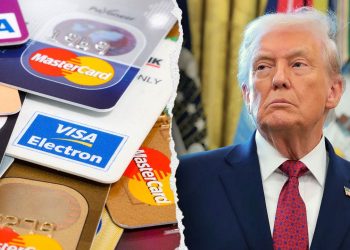Free-market principles made America the economic powerhouse of the globe and the most prosperous nation in history. The economic philosophy that transformed our country into the envy of the world is increasingly coming under attack. Failed big-government policies of yesteryear have slid back into political discourse. Price caps are a prime example.
A credit card interest-rate cap – which is a price cap on the percentage of interest a bank or card company can charge credit card holders – is gaining traction in Congress. The proposal’s supporters are well-intentioned, but Congress needs to pump the brakes and review history before rubberstamping a rate-cap bill.
Government-imposed price caps limit what can be charged for a particular good or service. They create shortages in the process. This is a fundamental rule of economics.
AMERICANS SAY CREDIT CARDS ADD TO THE CHALLENGE OF MANAGING FINANCES: SURVEY
Limiting prices may sound good in theory as a way to protect consumers from profit-hungry big businesses, but the people price caps are meant to help are the ones they hurt the most.
Restricting what can be charged for a particular product or service disrupts market pricing mechanisms and disincentivizes production. If you want less of something, place a price cap on that good or service. Rent control is a classic example.
I’m old enough to remember the dark days of the 1970s. During those years, many city governments put in place laws restricting the amount landlords could charge tenants for rent. This was great for people living in an apartment they liked, but good luck to young people looking for a place to start out or to a family that just moved into town.
It’s Economics 101. Caps on rent rates in Democrat-controlled cities disincentivized developers from building housing in those areas. Housing shortages abounded as a result. When government gets in the way of market forces, consumers pay the price. The same will be true if a cap is placed on credit card interest rates.
Limiting the percentage banks and credit card companies can charge on outstanding credit card balances will reduce access to credit. Card issuers must be compensated for the risk they take on when extending credit to cardholders. If rates are capped, card companies will stop issuing cards to less credit-worthy individuals. It’s that simple.
A young person entering the workforce, a hardworking mom who fell on hard times and has a low credit score as a result, a family new to our shores who went through our immigration system legally, and many others will be out of luck when it comes to getting a credit card.
Those with scores in the 800s will be just fine, but much of the country – including millions of financially responsible Americans – will lose access to vital credit.
In a world with credit card interest-rate caps, financially comfortable individuals with established credit histories will be the only Americans able to have a credit card. That’s not right.
The free market is incredibly efficient at setting the cost of goods and services based on the forces of supply and demand. Innovation – not big government control – is the most effective market disrupter that can lead to lower prices for consumers and economic growth.
It’s Economics 101. Caps on rent rates in Democrat-controlled cities disincentivized developers from building housing in those areas. Housing shortages abounded as a result. When government gets in the way of market forces, consumers pay the price. The same will be true if a cap is placed on credit card interest rates.
While it’s true many Americans get trapped in a cycle of credit card debt, the solution isn’t big-government rate caps. Instead, we need to do a better job educating our children and students on financial literacy and how to build and grow wealth. Credit cards can be a helpful tool in that process when used responsibly.
Empowering citizens with financial knowledge will create a more-prosperous society with self-sufficient citizens who don’t need a nanny state federal government to support them with government handouts from cradle to grave.
It’s a win-win. Financial literacy – not rate caps – should be the focus of policymakers who want to empower Americans to avoid falling into a cycle of debt.
Access to credit is essential to people of all financial backgrounds, and Congress ought to be focused on opening as many pathways as possible for our citizens to access credit of all kinds. Throwing free-market values out the window by supporting price caps is not a formula for success.
Republican Tommy Tuberville represents Alabama in the United States Senate.
Read the full article here








